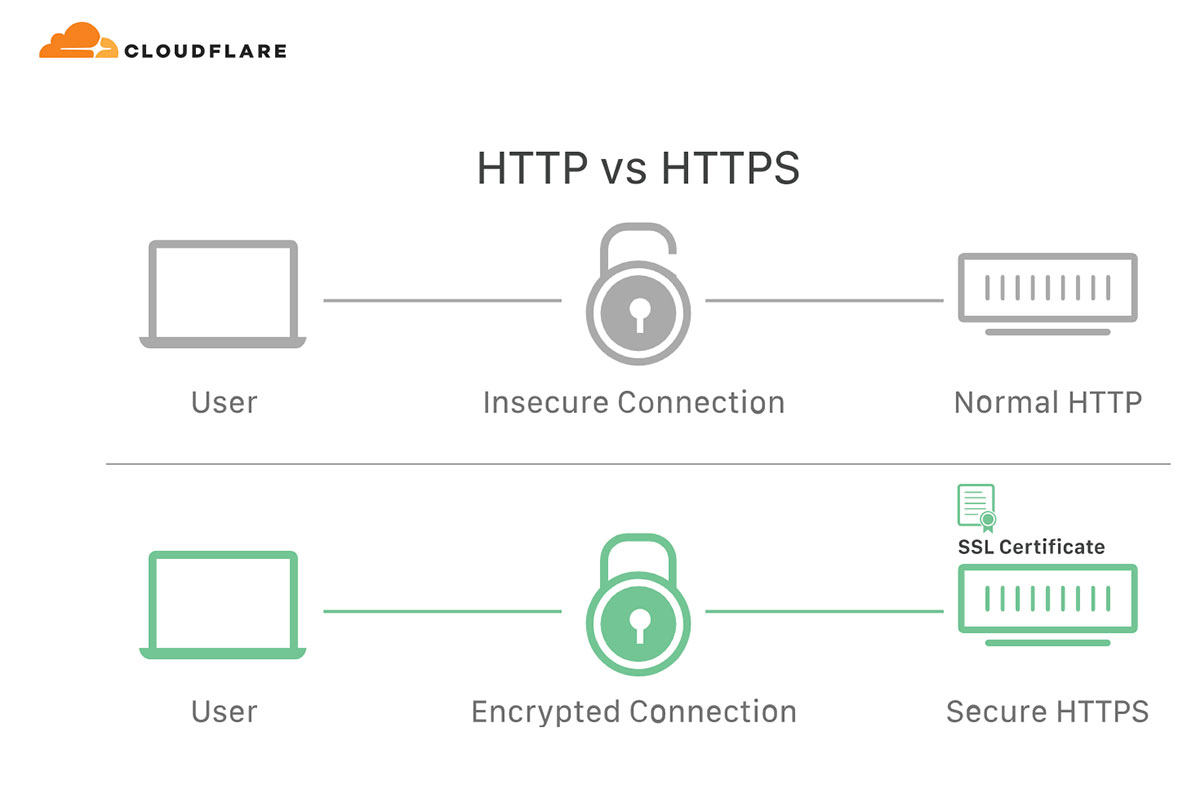Which Protocol Should I Use For My Website?
http://www.example.com
or
https://www.example.com

Answer:
HTTPS. Your site should be configured to use the HTTPS protocol: https://www.example.com
(www is optional)
Why Should I Use HTTPS?
- Security. HTTPS is HTTP with encryption and uses TLS (or SSL) to encrypt normal HTTP requests and responses.
- SEO. As a ranking signal in Google’s algorithm, HTTPS can improve the position of your website in search results.
- Trust. HTTPS sites display a “Lock” icon in the browser’s address bar. Visitors will know you’ve provided a secure connection to protect sensitive information and transactions.
- Compliance. Compromised Credit Card Transactions, Banking Transactions, Stolen Identity, and Personal Data can lead to large fines, penalties, and legal action.
- Goodness. It’s good for your Users, your Business, and the Web.
How Do I Set Up HTTPS?
- Server Access. You will need access to your server, web hosting admin panel, or third-party vendor settings/support.
- SSL Certificate. SSL certificate obtained and installed through your web host or third-party vendor. Free and Paid options available; talk to your hosting provider.
- Configure. Enable HTTPS on the server. (often one-click setup or contact support to implement HTTPS/SSL)
- Setup Redirects. Add appropriate redirects to handle and forward requests from HTTP to HTTPS. For example, on WordPress, you could use a plugin or modify the .htaccess file manually.
- Web Developer. Some setups are more complicated than others. When in doubt, proceed with caution, and contact your Web Developer.
- Update Profiles. Make sure to update links in your business profiles (step 7 on linked page) to include https://
How To Quickly Test Your Website
Try loading both versions of your own website and see what happens. Replace www.example.com with your domain name. For example, here are the two versions I would enter to test www.mattshows.com
http://www.mattshows.com
and
https://www.mattshows.com
If your site redirects and loads the single HTTPS version of your URL, then you are good to go! However, if your browser tries to load the HTTP version and presents a warning page, or notification, stating you are about to enter a non-private connection, then you should take quick action to remediate this issue.
HTTPS single version URL for the win! Keep your site users safe and secure.
Check out this article on Google Search Central to learn more about HTTPS as a Ranking Signal.